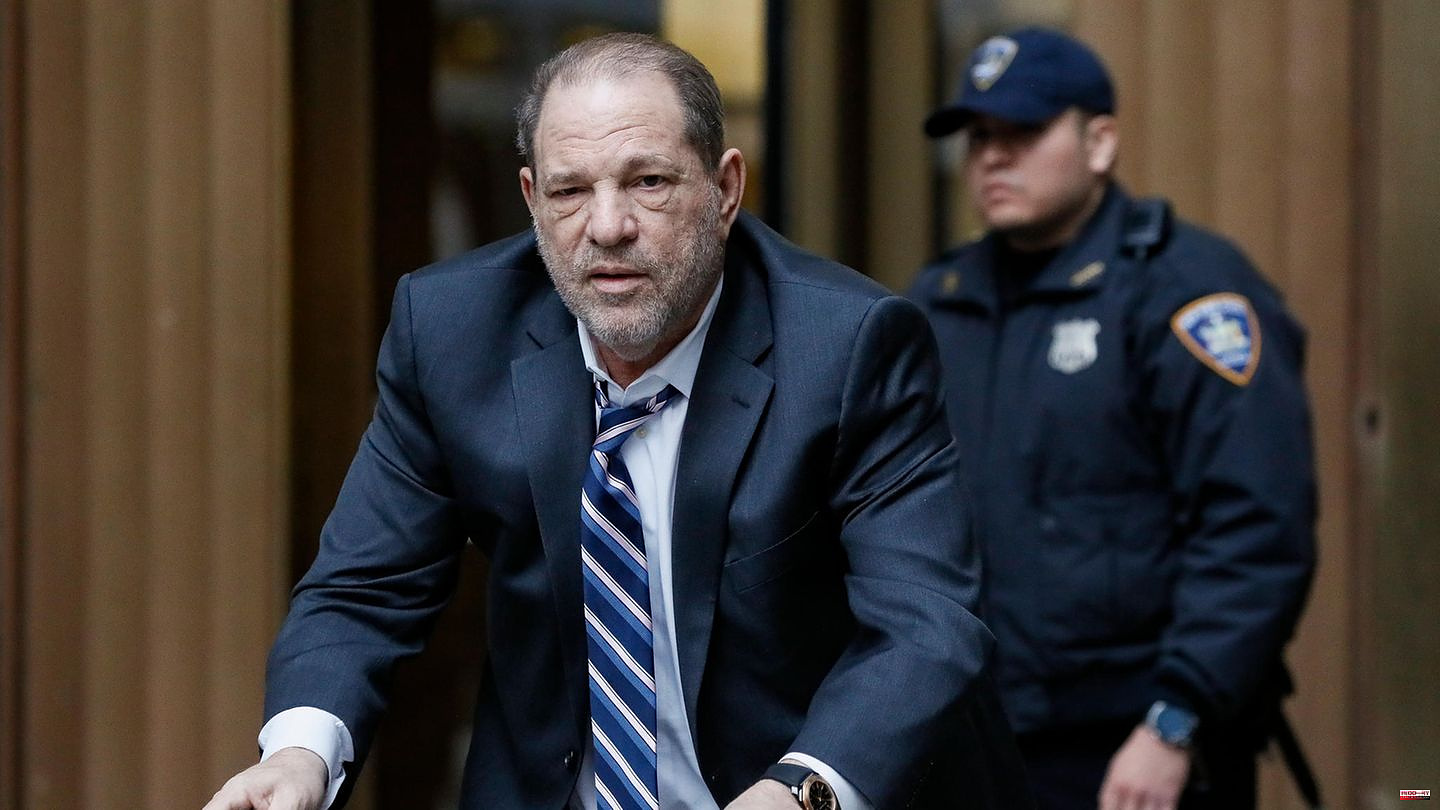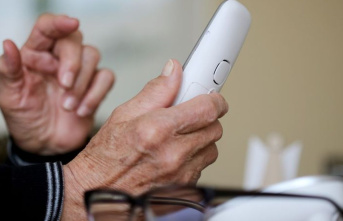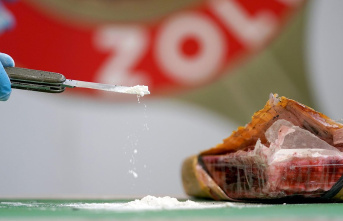In a complete surprise, a court in New York has overturned the historic conviction of former film mogul Harvey Weinstein for sex crimes. The lawyers at the appeals court in the US east coast metropolis thus revoked one of the most sensational legal rulings of recent years. In the context of the MeToo movement, it took on global significance in the fight against abuse and for equality between women and men. The case had that at that time
"We conclude that the trial court erred in allowing testimony about unindicted, alleged prior sexual conduct against persons other than the plaintiffs in the underlying offenses," the presiding judge wrote in Thursday's decision on the 72-year-old's appeal Weinstein and certified serious procedural errors by then-Judge James Burke. The decision of the seven judges was extremely close at 4:3.
In fact, the prosecution in the case, which received worldwide attention, relied on a number of witnesses who accused Weinstein of sexual assault, but who were not part of the prosecution. The prosecution wanted to use it to show that Weinstein's actions followed a recurring pattern. The sensational trial essentially centered on two allegations: Weinstein is said to have forced production assistant Mimi Haleyi to perform oral sex in 2006 and to have raped current hairdresser Jessica Mann in 2013.
The decision overturning the 2020 verdict describes the admission of the additional witnesses as a serious "mistake": "The only evidence against the defendant was the statements of the plaintiffs, and the result of the court decisions was, on the one hand, to strengthen their credibility and the "To diminish the defendant's character in front of the jury."
The first Weinstein trial marked a milestone in legal history - also because the former Hollywood great was found guilty primarily on the basis of the statements of witnesses, although he himself always protested his innocence. Material evidence played a subordinate role in the proceedings.
According to the women's statements, Weinstein's scam was to lure young actresses into hotel rooms under the pretense that he thought they were talented and wanted to help them with their careers. There he then demanded sexual acts from them. According to the prosecution, Weinstein took advantage of his prominent position of power in Hollywood to make the women compliant. He was very successful as a producer of films such as “Pulp Fiction” and “Gangs of New York”, and Weinstein also won an Oscar for “Shakespeare in Love”.
At the trial in New York, Weinstein always came to court with a walker, which critics saw as an attempt by his defense to portray him as weak and not scary. As managing director of his film company Miramax, Weinstein had a reputation for having an extremely powerful and loud, sometimes aggressive demeanor.
Weinstein was ultimately sentenced to 23 years in prison for rape and sexual assault. In another criminal trial in Los Angeles, 16 years in prison were added. According to the New York Times, Manhattan District Attorney Alvin Bragg must now decide whether to initiate a new case against Weinstein. A spokeswoman for the district attorney's office told The Daily Beast magazine that they would do "everything in our power to retry this case." Weinstein is in a prison in New York state. He will not be released at this time because of the conviction in the second California trial.
More than 80 women had accused Weinstein of sexual assault. The allegations against the producer, published in the New York Times and the New Yorker magazine in fall 2017, were the beginning of the MeToo movement.
Around the world, many women and some men recognized their own stories in those of the alleged Weinstein victims - they began collecting these stories under the slogan "Me too." The MeToo movement celebrated the verdict against Weinstein - but also criticized the fact that he was not found guilty on all charges.
The MeToo movement is seen as a driver of global equality between women and men. Due to the international debate and the condemnation of Weinstein, who was seen by many as the prototype of the abusive man, many unjust and sexist behaviors in societies were questioned. Actress Ashley Judd, who opened up about Weinstein in the New York Times article in 2017, said the appeals court's decision was "unfair to the victims." "We still live in our truth. And we know what happened."
Note: This post has been repeatedly updated.












